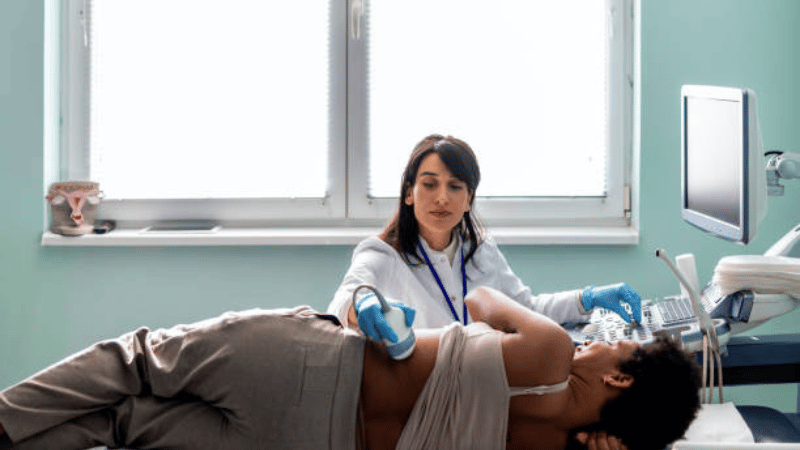
Thinking of Getting a Second Opinion for Fibroid Treatment?
If you are considering a major surgical procedure to treat your fibroids, such as a hysterectomy, it may be a good idea to seek a second opinion. This can help you understand all of your options and make an informed decision about your treatment. There are several different treatments for fibroids, including medication, surgical procedures, and non-invasive options such as uterine artery embolization.
Another reason to reach out to an additional doctor is if you are unsure about the diagnosis. Fibroids can sometimes be mistaken for other conditions, such as ovarian cysts or endometriosis. A second opinion can help confirm the diagnosis and ensure that you are receiving the appropriate treatment.
It may also be a good idea to seek additional insight if you have concerns about the experience or qualifications of your current healthcare provider. Not all healthcare providers have the same level of experience and expertise when it comes to treating fibroids, so it’s important to find a provider who has a proven track record of success.
Consider seeking a specialist who is experienced in diagnosing and treating fibroids. You can ask your primary care physician for a referral, or you can search for a specialist in your area online. It’s also a good idea to bring any medical records, imaging scans, or test results with you to your appointment.
Getting a second opinion for fibroid treatment is always a good idea if you have any doubts or concerns about your diagnosis or treatment options. By working with a qualified and experienced healthcare provider, you can ensure that you receive the best possible care for your condition.
When Should You Get a Second Opinion?
Fibroids can present with varying complexities, and different specialists may have distinct areas of expertise that can help you feel educated on your options. The decision on when to seek this can be based on multiple individual variables and it is important to
It is advisable to consider seeking a second opinion for fibroid treatment in several situations:
First, if a patient receives a diagnosis of fibroids but feels uncertain about the recommended treatment plan or has concerns about the proposed approach, a second opinion can provide valuable clarity and confidence.
Additionally, if the fibroids are large, rapidly growing, or causing severe symptoms that significantly impact daily life, obtaining another expert’s perspective is essential to explore all available options.
Moreover, when the initial treatment plan involves major surgeries, such a hysterectomy and the patient wishes to preserve their uterus or decide on a plan that has less risks.
A hysterectomy is a surgical procedure to remove the womb (uterus). You’ll no longer be able to get pregnant after the operation. If you have not already gone through the menopause, you’ll no longer have periods, regardless of your age. It’s more common for women aged 40 to 50. 1
Overall, a second opinion appointment offers patients a well-rounded understanding of your condition, empowers you in your healthcare journey, and ensures that you receive the most appropriate and personalized treatment for fibroids.
Find out the importance of getting a second opinion from our experienced fibroid specialists at USA Fibroid Centers. Watch the video below:
Can Fibroids Be Misdiagnosed?
While some women may experience noticeable symptoms such as heavy bleeding or pelvic pain, many women may have fibroids without any symptoms at all. To diagnose fibroids, a healthcare provider (such as an interventional radiologist or an OB-GYN2) and will typically begin with a physical exam to check for the presence of a pelvic mass. Imaging tests such as ultrasound, magnetic resonance imaging (MRI), or computed tomography (CT) scans may also be used to confirm the diagnosis and determine the size and location of the fibroids
Imagining technology machines will take a scan or picture of the inside of your body and can help diagnose fibroids.
Some examples of imaging technology are:
- Ultrasound uses sound waves to create images of the inside of the body, depending where the tech is placed.
- Saline infusion sonography involves injecting a salt solution into the uterus to aid in the creation of the ultrasound image.
- Magnetic resonance imaging (MRI) generates the image using magnets and radio waves.
- X-rays use a type of electromagnetic radiation to “see” into the body.
- Computed tomography (CT) or computer-assisted tomography ( CAT scan) examines the body using X-rays from several angles to provide a complete picture.
With proper diagnosis and treatment, most women with fibroids can find relief from their symptoms and enjoy a better quality of life.
What Happens at a Second Opinion Appointment
At a second opinion appointment for fibroid treatment, a patient can expect a comprehensive and thorough evaluation of their medical condition. The appointment typically begins with a detailed discussion between the patient and the specialist, where the patient can express their concerns, symptoms, and any prior treatments they have undergone. The specialist will then review the patient’s medical history and relevant test results to gain a comprehensive understanding of the fibroid’s size, location, and potential impact on the patient’s health. After the initial discussion and examination, the specialist may order additional tests, such as ultrasounds or MRI scans, to further assess the fibroid’s characteristics.
With all the necessary information at hand, the specialist will then provide an expert opinion on the most suitable treatment options for the patient, taking into account their individual health needs and preferences. This second opinion appointment is an essential step in empowering the patient to make informed decisions about their fibroid treatment, ensuring the best possible outcome and quality of life moving forward.
Second Opinion Fibroid Treatment Options
Once you’re diagnosed, your doctor should discuss all treatment options with you – not just a hysterectomy. They should be talking you through your treatment plan and ensuring you know each treatment’s pros and cons.
At USA Fibroid Centers, our fibroid specialists specialize in uterine fibroids and have the volume of UFE procedures to determine the best candidates for successful results. Our interventional radiologists are credible, dependable, and well-respected. They perform the minimally invasive uterine fibroid embolization (UFE) outpatient procedure, and you can go home the same day. As an FDA-approved procedure, UFE treats uterine fibroids and its symptoms. There is no need for hospitalization, stitches, or scars and it preserves your uterus.
A UFE procedure is short and relatively straightforward. One of our interventional radiologists will begin by administering a mild sedative to help you relax. We will use modern ultrasound equipment to detect your fibroids while keeping you comfortable. They will then numb your upper thigh or wrist before making a small incision to insert a tiny catheter. Fluoroscopy, or real-time x-ray, assists in guiding the catheter into the uterine artery, which provides blood to fibroids. The embolic substance is injected into the artery, and these particles will obstruct blood flow, preventing blood from reaching your fibroids and forcing them to shrink. The fibroids begin to fade and shrink without the continuous supply of oxygenated blood. Because the embolic material injected remains permanently in the blood vessels at the fibroid site, it is unlikely that the same fibroid will recover to its original size.
At our centers, we know deciding what procedure you want to get for your fibroids can be overwhelming and confusing.
USA Fibroid Centers Can Help
Our specialists take every step you need to feel comfortable to ask the questions you need answers to. We put you first and keep your comfort and knowledge in mind. If you have any questions about insurance or our centers, call 855.615.2555 or schedule a second opinion consultation to discuss your future treatment plan. We’re here to help you through all steps of your UFE journey.
You may learn about alternative treatment options or gain a better understanding of the risks and benefits of different treatments. Ultimately, the decision to get a second opinion is a personal one, but it can provide valuable insight and peace of mind when it comes to managing your fibroids.
Book Your Second Opinion Appt with Us





